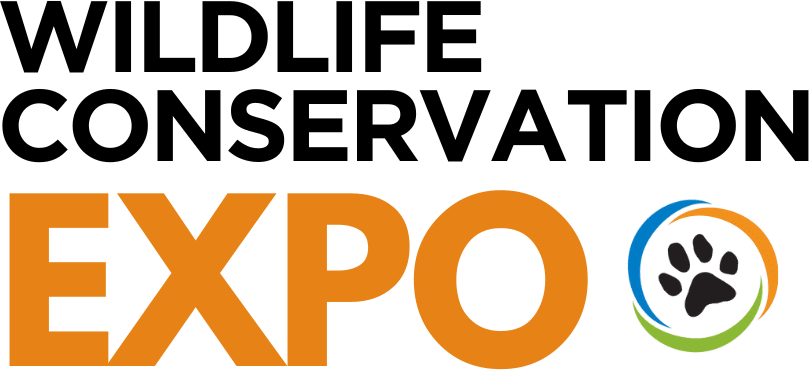Expo is where you can meet some of your favorite conservationists—and welcome some of the newest additions to our Network—and hear firsthand how your support helps them make lasting impacts for endangered wildlife.
Browse some of the speakers that were featured at Expo on October 4, 2025.
Dr. Rocío Palacios

Andean Cat Alliance
Dr. Rocío Palacios has been interested in wildlife, particularly felines, since age 11. She studied biology at the National University of Córdoba and completed her doctoral thesis on the Andean cat. She arrived in the Andes in 2003, researching Andean cats and working for the Wildlife Conservation Society and the Argentine National Parks Agency, always as part of the Andean Cat Alliance (AGA). After finding signs of Andean cats in northern Patagonia in 2005, Rocío coordinated research and trained staff in protected areas. In 2018, she received the Disney Conservation Hero prize for her work with the AGA. Rocío is part of the cat specialist group of the IUCN and the Argentine Society of Mammalogy.
Katlego Kolanyane-Kesupile

Cheetah Conservation Botswana
Katlego, fondly known to the team as Kat, was born in Francistown and has a long history of loving cheetahs. Katlego holds a Masters in Human Rights, Culture and Social Justice from Goldsmiths University of London, and a BA (Hons) Dramatic Arts specializing in directing and design from University of the Witwatersrand. With over a decade of communications experience, Katlego is also a multi-skilled educator, artist and development practitioner which allows her to contribute to broadly to CCB’s engagement and awareness work. Katlego joined CCB in 2019, after some years of offering support services to the organization.
Dr. Pablo Borboroglu
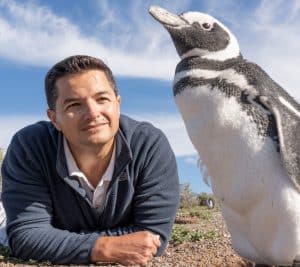
Global Penguin Society
Pablo is the founder and president of the Global Penguin Society. He is also a researcher at the National Research Council in Argentina, associate professor at the University of Washington, and the co-founder and co-chair of the IUCN Penguin Specialist Group. He has spent 33 years in the field of marine conservation, focusing on protected areas and seabird ecology and conservation, with special emphasis on penguins. He leads a global conservation effort for penguins and together with his team he has helped protect 32 million acres of ocean and coastal habitat for penguins. He received his Ph.D. with honors in Biology from the National University of Comahue. Pablo is a recipient of the 2018 Whitley Gold Award, an Associate Laureate of the 2019 Rolex Awards for Enterprise, and a winner of the 2023 Indianapolis Prize—the first recipient from South America.
Amanda Shia

Hutan
Born and raised in Sabah, Malaysia, Amanda Shia is HUTAN’s Scientific Officer under their Wildlife Survey and Protection Unit. Amanda is responsible for the scientific aspect of monitoring and reporting HUTAN’s significant findings to support conservation decision-making on the landscape level, as well as to inform donors and partners of HUTAN’s latest efforts. This extends to proactively being involved in ground field work and assisting in HUTAN’s other monitoring and surveys.
Dr. Sam Williams
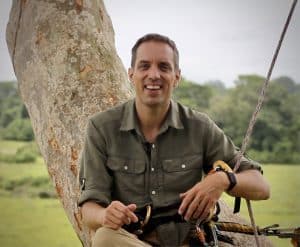
Macaw Recovery Network
Dr. Sam Williams has had a lifelong fascination with parrots. He leads an amazing team of conservationists at the Macaw Recovery Network in Costa Rica, and together they are working to prevent the extinction of the Critically Endangered great green macaw. Their work also helps protect other endangered parrots, as well as their habitats and the communities that live in the same areas where these birds are found.
Dr. Rachel Graham
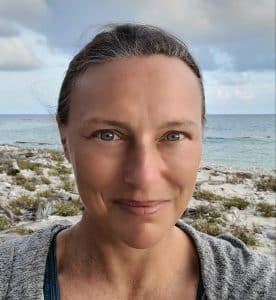
MarAlliance
Dr. Rachel Graham is a conservation scientist with over 28 years of experience on projects around the world. She is the founder and Executive Director of MarAlliance, an international organization dedicated to the research and conservation of large marine wildlife, such as sharks, rays, turtles, and large finfish. Rachel has dedicated over two decades to working with traditional fishers on community-based fisheries and the research and conservation of apex marine predators, inspiring many shark researchers and conservationists. In 2011, she won the Whitley Fund for Nature Gold Award for her work, and in 2021, she was awarded a prestigious Pew Marine Fellowship to work with sharks, communities and protected areas.
Dr. Colleen Begg
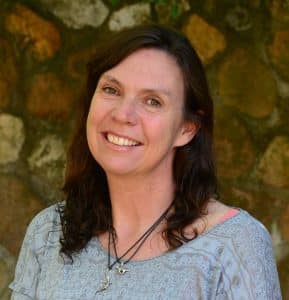
Niassa Lion Project
Dr. Colleen Begg is a South African conservation ecologist with more than 25 years of experience in grassroots conservation and community engagement. She is passionate about securing African wilderness areas and large carnivore populations by inspiring transparent, locally-derived, and collaborative conservation actions. She co-founded the Niassa Lion Project in 2003 and is an alumna of Homeward Bound, a global leadership initiative for 1,000 women with STEMM backgrounds, which aims to heighten the influence and impact of women in making decisions that shape our planet. In 2018, she co-founded Women for the Environment, Africa (WE Africa), a transformational leadership program for African women conservation leaders whose purpose is to put women at the heart of transforming Africa’s environmental movement.
Berce N'safuansa Disiki
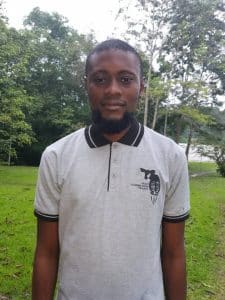
Okapi Conservation Project
Berce N’safuansa is the Program Manager for the Okapi Conservation Project (OCP). Berce facilitates the implementation, monitoring, and evaluation of all OCP’s programs, including Agroforestry, Education, Maintenance and Logistics. Though he has only worked full time for OCP since 2019, he’s had a passion and dedication for protecting okapi since childhood. After the early passing of his father, Jean N’lamba, who helped start OCP in 1987, Berce wished to carry on his father’s legacy. He believes involving communities is the key to a successful conservation program and he regularly meets with community members, leaders, and local chiefs to ensure OCP programs are meeting the needs of the community.
John Lukas
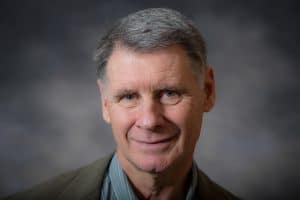
Okapi Conservation Project
John Lukas has over 40 years of experience in holistic wildlife conservation. He received his master’s in Zoology from Northeastern University and spent 30 years at the helm of White Oak Conservation Center. In 1987, John founded the Okapi Conservation Project in the Democratic Republic of Congo. John is the founding member and president of the International Rhino Foundation, a founding board member of the Wildlife Conservation Network, a director of the Tusk Trust, and an advisor for the Conservation Centers for Species Survival. He also serves on the IUCN species specialist groups for giraffe and okapi.
David Kuvawoga
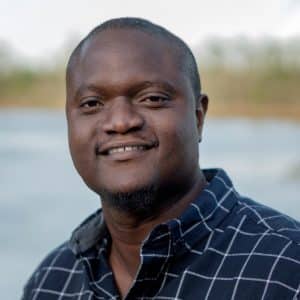
Painted Dog Conservation
David Kuvawoga grew up in Hwange National Park in Zimbabwe, where he was constantly surrounded by wildlife and often heard the sounds of lions roaring from his home. This fueled his passion for conservation, leading him to earn a degree in Nature Conservation from the Tshwane University of Technology in South Africa. Today, David is the Operations Manager at Painted Dog Conservation, where he runs the daily operations of the entire team in Zimbabwe to ensure the success of PDC’s efforts to protect and increase painted dog populations while supporting local communities.
Rosamira Guillen
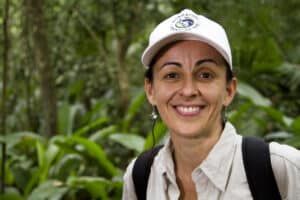
Proyecto Tití
Rosamira Guillen is a proud Colombian with degrees in Landscape Architecture and Environmental Management. When she was Executive Director at the Barranquilla Zoo, she discovered Proyecto Tití and cotton-top tamarins. She joined and later became Proyecto Tití’s Director in 2008. Under her leadership, Proyecto Tití has gotten cotton-tops classified as a critically endangered species, protected over 13,500 acres of forest, created a National Program for cotton-top conservation, and expanded Proyecto Tití’s community and education programs. Rosamira received the CARACOL Award for Environmental Conservation in 2014, the Whitley Award in 2015, the National Geographic/Buffet Award in 2017, and the Latin-American Green Award in 2019. She joined WCN’s Board of Directors in 2022.
Dr. Olivier Nsengimana
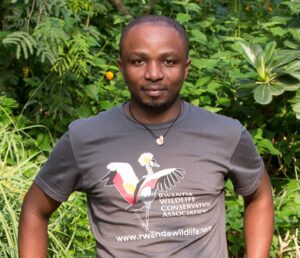
Rwanda Wildlife Conservation
In 2014, Dr. Olivier Nsengimana designed a unique conservation project to abolish the illegal trade of endangered grey crowned cranes in Rwanda and won the Rolex Award for Enterprise. He established Rwanda Wildlife Conservation Association in 2015 to build upon his work with grey crowned cranes and expand research and conservation efforts to other species in Rwanda and the East African region. Olivier has received the 2017 National Geographic Buffett Award for Leadership in Conservation in Africa, the 2018 Whitley Award, the 2019 Future For Nature Award, and most recently, the 2020 Virginia McKenna Award for Compassionate Conservation. Olivier is a Doctor in Veterinary Medicine and has a Master of Veterinary Science, Conservation Medicine from the University of Edinburgh, UK.
Frank Pope
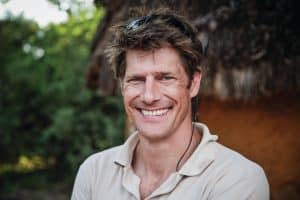
Save the Elephants
Frank Pope is CEO of Save The Elephants (STE). He joined STE in 2012 at the height of the elephant poaching crisis. An experienced bush pilot, Frank is at the helm of an organization renowned for using the power of science to secure a future for elephants. Prior to joining STE, Frank spent many years in marine science and conservation, becoming the world’s first Ocean Correspondent at The Times newspaper in London. During this time, he published two acclaimed books and fronted the BBC series Britain’s Secret Seas. Frank and Save the Elephants’ world-leading team of scientists and conservationists are working to reveal the intricate world of elephants and advance their protection.
Dr. Nurzhafarina 'Farina' Othman

Seratu Aatai
Frank Pope is CEO of Save The Elephants (STE). He joined STE in 2012 at the height of the Dr. Nurzhafarina “Farina” Othman is the Founder and Director of Seratu Aatai. Farina was born and raised in Borneo and has committed her life to protecting the Bornean elephants. The Houston Zoo sponsored Farina’s doctoral degree and provided support for extensive leadership training for her over the years. She is a compassionate and effective wildlife conservation leader that now has her own elephant conservation organization called Seratu Aatai. Dr. Farina is inspiring and mentoring many other young women scientists in her country to pursue wildlife conservation careers.
Dr. Jim Sanderson
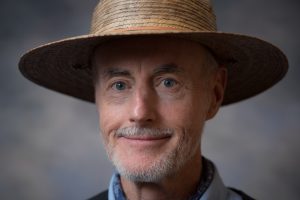
Small Wild Cat Conservation Organization
Dr. Jim Sanderson has over 4 decades of experience in the conservation of small cats. He is the founder and director of the Small Wild Cat Conservation Foundation (SWCCF). In 2004, Jim was the first person to capture and radio-collar an Andean cat; his images of Andean cats have also been featured in National Geographic. Jim was also the first person to ever photograph the Chinese mountain cat in the wild. Jim has a Ph.D. from the University of New Mexico and is the Program Manager for Wild Cat Conservation at Global Wildlife Conservation. He is also a member of the IUCN Cat Specialist Group and a review board member of the Mohamed bin Zayed Species Conservation Fund.
Dr. Jean-Gaël "JG" Collomb

Wildlife Conservation Network
JG has always been passionate about animals. With over two decades of experience in the non-profit sector, his focus has been at the interface between wildlife conservation and development issues. He joined WCN in 2012 and provides strategic leadership to enhance WCN’s overall impacts, sustainability and growth. Originally from Paris, France, JG started his career working with inspiring ecologists studying chimps, gorillas, and mandrills and dodging the occasional elephant in Gabon. At the World Resources Institute, he managed an NGO network to monitor logging companies in Central Africa. He returned to Gabon with the Wildlife Conservation Society to help the development of national parks and ecotourism. For his Ph.D., JG studied the effects of tourism on people’s wellbeing around protected areas in northeastern Namibia. JG is thrilled to combine all of his interests through his work at WCN. When not at work, he tries to keep up with his wife and two children exploring the outdoors and cultural diversity of the Bay Area.


